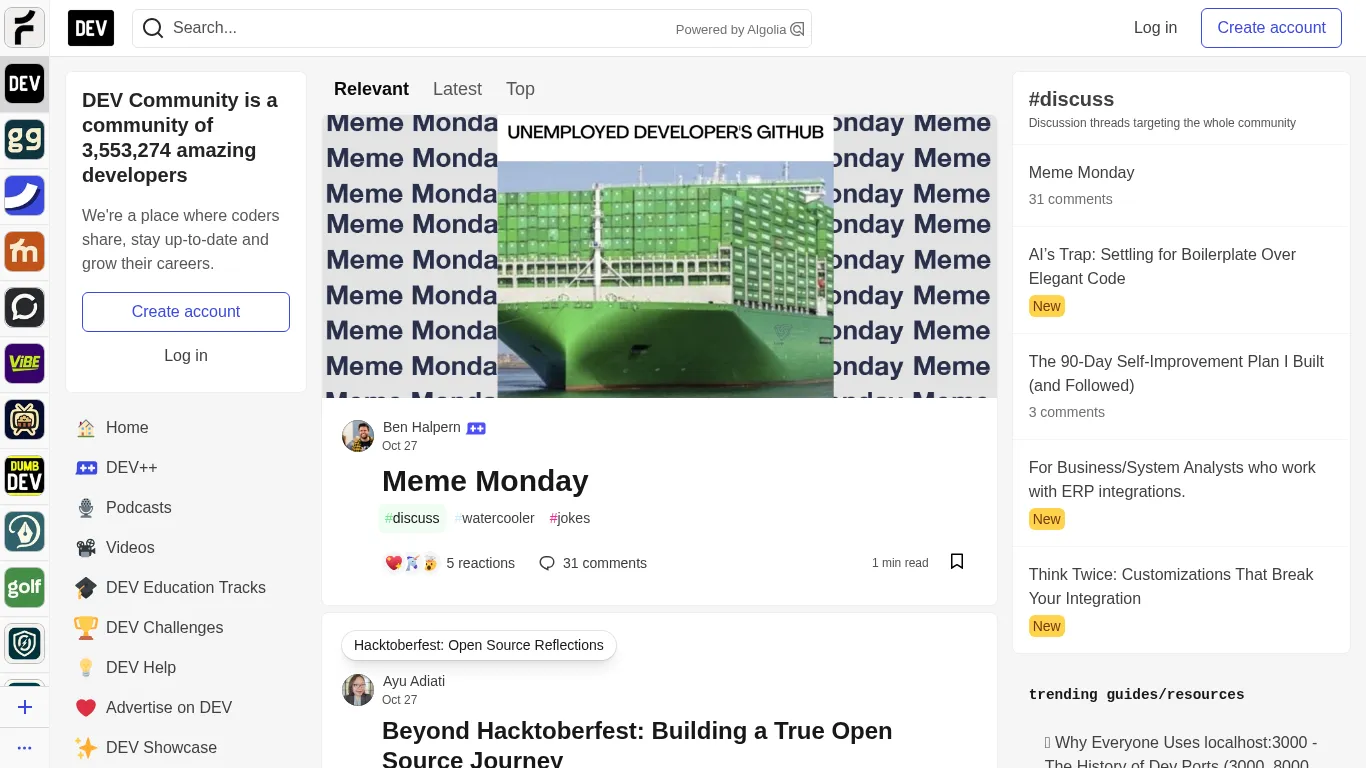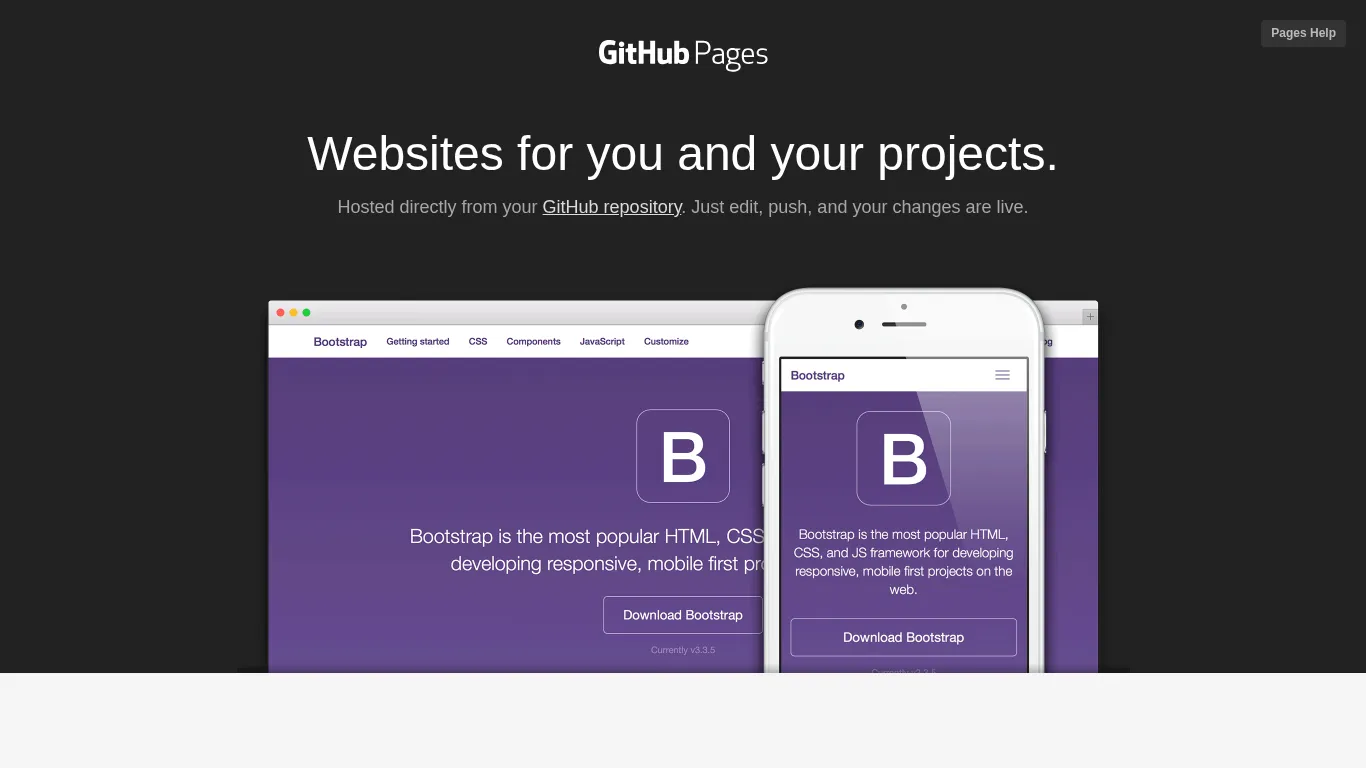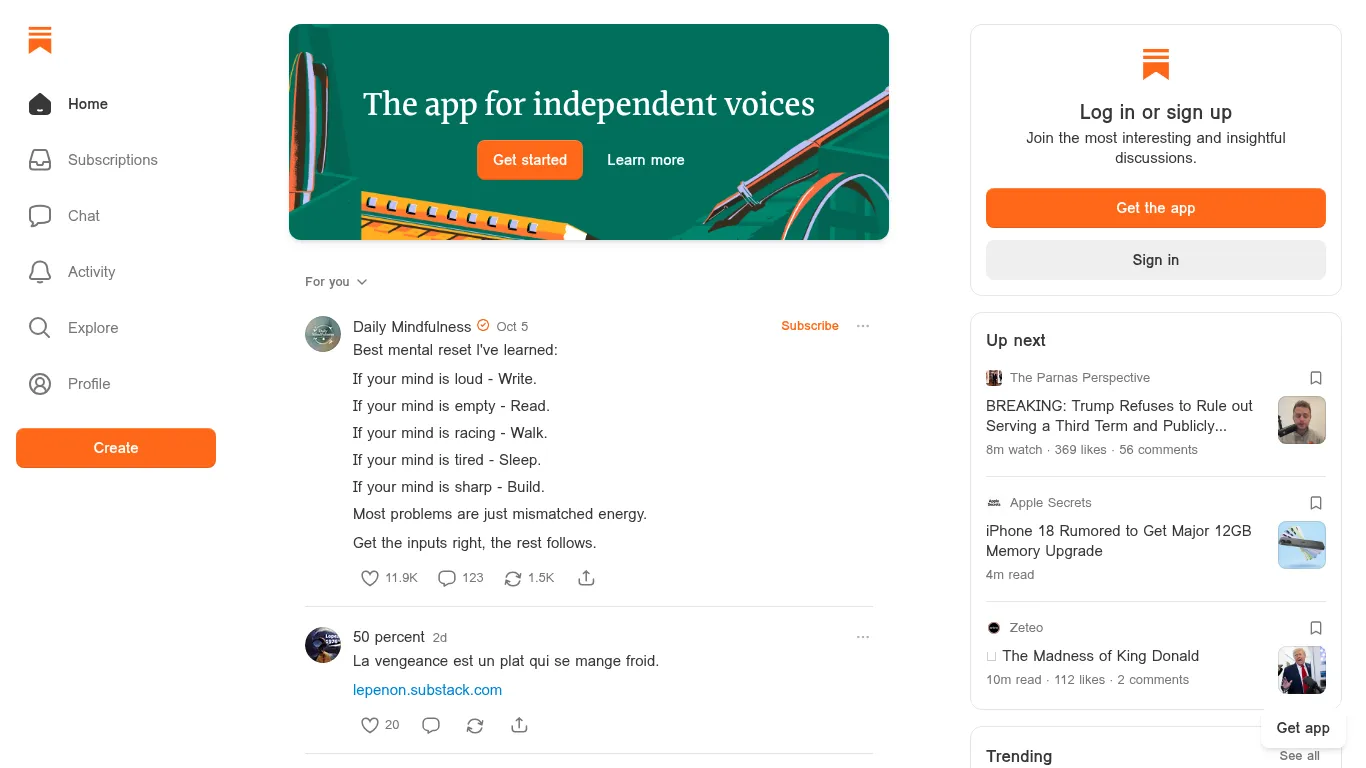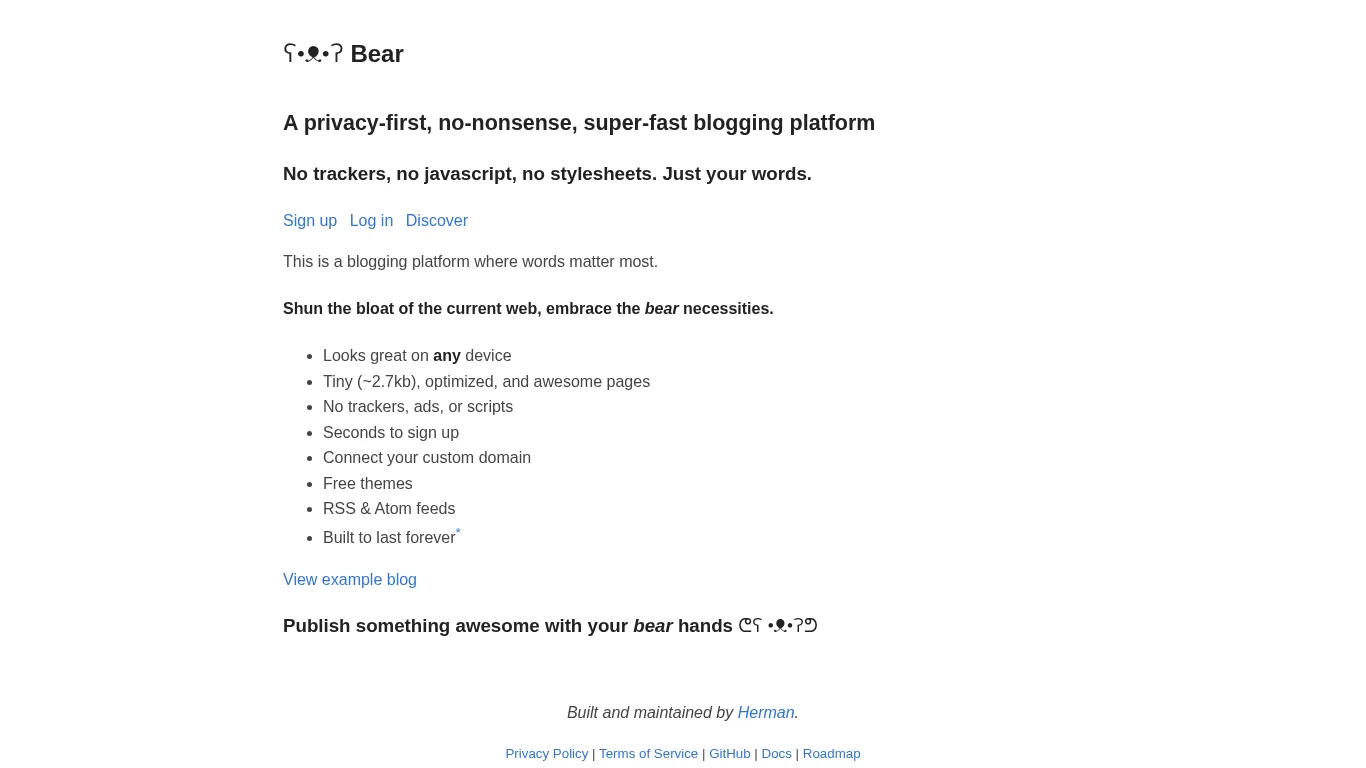Introduction: Why Look Beyond Hashnode in 2025?
Hashnode remains a strong choice for developer blogging - clean writing UX, an engaged tech community, and built-in distribution that helps new posts find readers. For many developers and teams, though, 2025 brings new content needs that call for exploring Hashnode alternatives and broader developer blogging platforms.
If you care about full content ownership, advanced SEO control, multi-site and multi-author management, or blending blogs with docs and changelogs under one roof, you might outgrow a single-purpose tool. Teams increasingly need automation (from topic research to internal linking), richer analytics, custom domains on multiple sites, and content formats that serve both Google and AI-powered search. That’s where a wider landscape of coding blog tools and Hashnode competitors can shine.
Who this guide is for:
Solo devs building a personal expert brand
Founders who need to grow organic traffic fast
SaaS teams launching blogs, help centers, and changelogs together
Technical writers and product marketers shipping content at scale
At BlogBowl, we evaluate platforms through the lens of growth, speed, and simplicity - so you can pick the right publishing stack without losing months to setup or plugins.
How we picked (short criteria):
Developer-first UX and performance
SEO and ownership: custom domains, metadata, sitemaps, structured data
Community reach and discovery potential beyond your own site
Extensibility and integrations with no-code stacks and workflows
Learning curve and time-to-first-publish
Monetization options for creators and teams (sponsorships, subscriptions)
What you’ll get:
10 vetted Hashnode alternatives with quick specs, best-fit use cases, and clear trade-offs - so you can choose the platform that matches your goals today and scales with you tomorrow.
1) BlogBowl - Spin up a pro developer blog, changelog, and help center in minutes (AI‑powered)

Why it’s a solid Hashnode alternative
AI automations for daily SEO‑optimized posts, internal linking, keyword research, and embedded media
Launch in under 60 seconds; no‑code setup; built‑in analytics and newsletter
Ideal for SaaS teams who want multi‑blog management, changelogs, and help docs alongside a blog
Standout features for developers
Fast, SEO‑optimized templates built to rank in Google and AI search tools
Code‑friendly posts, custom domains, and flexible branding
Multi‑author, multi‑blog workspaces with privacy‑friendly analytics
Things to consider
Community discovery is external (you own distribution and SEO rather than relying on an in‑platform feed)
Quick specs
Attribute | Detail |
|---|---|
Best for | SaaS teams, startups, indie devs who want SEO + automation |
Hosting model | Fully hosted SaaS |
Content ownership | You own your content and domain |
Community reach | External (search/social/email) |
Learning curve | Low (no code required) |
Monetization | Via your stack (newsletter, gating, product CTAs) |
Pricing model | Free + premium tiers |
Notable integrations | Custom domains, no‑code tools, newsletter |
2) DEV Community (DEV.to) - Developer‑first blogging with built‑in readership
DEV Community is a developer-first blogging platform with strong built-in discovery, making it a popular choice for tutorials, snippets, and thought leadership within the dev ecosystem.

Why it’s a solid Hashnode alternative
Purpose‑built for developers with tags, discussions, and discovery
Great for learning, sharing tutorials, and building developer brand
Standout features for developers
Markdown posts, code snippets, and rich tagging
Active comment culture and community‑run challenges
Things to consider
Less control over SEO/branding vs self‑hosted platforms
Quick specs
Attribute | Detail |
|---|---|
Best for | Devs seeking community discovery and feedback |
Hosting model | Hosted community platform |
Content ownership | Platform‑hosted with canonical options |
Community reach | High (built‑in dev audience) |
Learning curve | Very low |
Monetization | Indirect (sponsorships, consulting, career growth) |
Pricing model | Free |
Notable integrations | Canonical links, embeds |
3) Ghost - Open‑source, SEO‑friendly publishing and newsletters
Ghost is an open‑source publishing platform that gives developers full control over branding, SEO, and monetization. It’s built for speed and ownership, with memberships and newsletters baked in.

Why it’s a solid Hashnode alternative
Own your stack and brand; excellent SEO control and performance
Built‑in memberships and newsletters for creator monetization
Standout features for developers
Markdown‑first editor, clean themes, and headless API
Self‑host or use Ghost(Pro) for managed hosting
Things to consider
More setup/maintenance than fully managed community platforms
Quick specs
Attribute | Detail |
|---|---|
Best for | Devs/teams who want full ownership + memberships |
Hosting model | Self‑host or managed hosted |
Content ownership | Full ownership |
Community reach | External (search/newsletter) |
Learning curve | Moderate |
Monetization | Built‑in memberships/newsletters |
Pricing model | Open‑source + hosted plans |
Notable integrations | Zapier, Stripe, headless CMS API |
4) GitHub Pages (with Jekyll/Hugo) - Free, static, and developer‑native
GitHub Pages pairs perfectly with static site generators like Jekyll or Hugo, giving developers a free, fast, and highly controllable way to publish technical blogs.

Why it’s a solid Hashnode alternative
Free hosting via GitHub Pages with static site generators like Jekyll/Hugo
Git‑based workflow fits developer tooling and CI/CD
Standout features for developers
Total control over code, theme, and performance
Custom domains and HTTPS
Things to consider
Requires setup and maintenance; discovery is on you
Quick specs
Attribute | Detail |
|---|---|
Best for | Devs who want full control and a free, fast blog |
Hosting model | Static hosting (GitHub Pages) |
Content ownership | Full ownership |
Community reach | External (search/social) |
Learning curve | Moderate to high (static site workflow) |
Monetization | Via custom integrations (ads, sponsors) |
Pricing model | Free (hosting) + optional costs (domains, tools) |
Notable integrations | GitHub Actions, Jekyll/Hugo plugins |
5) WordPress.org - The most flexible path to a dev blog
WordPress.org gives you unmatched flexibility and control, with a vast plugin ecosystem and mature workflows for multi-author teams. It’s the go-to if you want to tailor every aspect of your developer blog and SEO stack.

Why it’s a solid Hashnode alternative
Massive ecosystem of themes/plugins; excellent SEO extensibility
Mature tooling for multi‑author/team blogs
Standout features for developers
Full ownership and portability; headless options via REST/GraphQL
Endless customization with dev‑friendly themes and blocks
Things to consider
Requires hosting, updates, and plugin curation
Quick specs
Attribute | Detail |
|---|---|
Best for | Teams needing maximum flexibility and SEO control |
Hosting model | Self‑hosted (choose your provider) |
Content ownership | Full ownership |
Community reach | External (search/newsletters) |
Learning curve | Moderate |
Monetization | Plugins/memberships/ads |
Pricing model | Open‑source; hosting/plugins are paid/free mix |
Notable integrations | Thousands of plugins, headless frameworks |
"WordPress powers 43.2% of all websites and holds 60.6% of the CMS market share." - Source
6) Medium - Clean writing experience with broad reach
Medium offers a minimalist, polished editor and a built‑in audience, making it easy to publish thought leadership and perspective pieces with minimal setup.

Why it’s a solid Hashnode alternative
Simple, beautiful editor and built‑in network discovery
Great for thought leadership and non‑tutorial essays
Standout features for developers
Canonical linking for SEO; publications for added distribution
Minimal setup; focus on writing
Things to consider
Limited branding/SEO ownership vs self‑hosted options
Quick specs
Attribute | Detail |
|---|---|
Best for | Devs prioritizing reach and minimal setup |
Hosting model | Hosted platform |
Content ownership | Platform‑hosted with canonical support |
Community reach | High (platform network) |
Learning curve | Very low |
Monetization | Partner program, sponsors |
Pricing model | Free + premium reader memberships |
Notable integrations | Embeds, canonical links |
7) Substack - Newsletter‑first, blog included
Substack makes it simple to build an owned audience via email while publishing posts to a public blog - ideal for developer educators and thought leaders.

Why it’s a solid Hashnode alternative
Own your audience via email while maintaining a public blog
Paid subscriptions built in
Standout features for developers
Markdown‑style drafting, code blocks, and podcast support
Easy growth levers: recommendations, referrals
Things to consider
Less customizable site compared to Ghost/WordPress
Quick specs
Attribute | Detail |
|---|---|
Best for | Dev educators and thought leaders growing an email list |
Hosting model | Hosted platform |
Content ownership | You own your list; platform‑hosted content |
Community reach | Email‑centric + platform network |
Learning curve | Very low |
Monetization | Built‑in paid subscriptions |
Pricing model | Free + platform fees on paid |
Notable integrations | Embed widgets, referrals |
8) HackerNoon - Tech publication with editorial amplification
HackerNoon offers access to a large tech audience plus editorial support, making it a strong venue for product stories, opinion pieces, and in-depth tutorials.

Why it’s a solid Hashnode alternative
Established tech audience and editorial support
Great for product stories, opinion pieces, and tutorials
Standout features for developers
Submission workflow, tags, and distribution to a tech readership
Author profiles to build credibility
Things to consider
Editorial review; less immediate control than self‑publish
Quick specs
Attribute | Detail |
|---|---|
Best for | Devs seeking publication‑driven reach |
Hosting model | Hosted publication |
Content ownership | Platform‑hosted with canonical options |
Community reach | High (publication audience) |
Learning curve | Low |
Monetization | Indirect (brand, sponsors) |
Pricing model | Free + premium options |
Notable integrations | Canonicals, embeds |
9) DZone - Enterprise‑leaning developer hub
DZone is a long‑running destination for enterprise developers and architects, with deep coverage across Java, cloud, DevOps, and microservices. If you’re comparing Hashnode alternatives for more formal, enterprise‑grade publishing and discovery, DZone’s topic hubs and research reports can amplify your reach to senior engineering audiences.

Why it’s a solid Hashnode alternative
Strong audience for architecture, DevOps, and Java/enterprise content
Editorial hubs and research guides boost visibility
Standout features for developers
Topic portals, community writing, and syndicated reach
Good fit for senior/enterprise‑focused content
Things to consider
More formal editorial standards; not ideal for casual blogging
Quick specs
Attribute | Detail |
|---|---|
Best for | Devs targeting enterprise/architect audiences |
Hosting model | Hosted publication/community |
Content ownership | Platform‑hosted with canonicals |
Community reach | High (enterprise developer audience) |
Learning curve | Low |
Monetization | Indirect (brand, leads) |
Pricing model | Free + enterprise programs |
Notable integrations | Embeds, canonicals |
10) Bear Blog - Ultra‑minimal, fast, and privacy‑friendly
Bear Blog strips blogging down to the essentials: words, speed, and privacy. With no trackers or JavaScript by default, it’s perfect for developers who want a distraction‑free space to write and ship fast.

Why it’s a solid Hashnode alternative
No trackers, instant setup, excellent performance
Focus on writing and SEO simplicity
Standout features for developers
Markdown editor, custom domains, and RSS
Tiny footprint for great Core Web Vitals
Things to consider
Minimal theming and integrations by design
Quick specs
Attribute | Detail |
|---|---|
Best for | Devs who want a clean, fast, distraction‑free blog |
Hosting model | Hosted minimalist platform |
Content ownership | You own your domain/content |
Community reach | External (search/newsletters) |
Learning curve | Very low |
Monetization | External (sponsors, links) |
Pricing model | Free + premium upgrades |
Notable integrations | Custom domain, RSS |
Side‑by‑Side Comparison Table
Tool | Best for | Hosting model | Content ownership | Community reach (built‑in vs external) | Learning curve (low/moderate/high) | Monetization options | Notable differentiator (1‑line) |
|---|---|---|---|---|---|---|---|
BlogBowl | SaaS teams, startups, indie devs who want SEO + automation | Fully hosted SaaS | You own content and domain | External | Low | Via your stack (newsletter, gating, product CTAs) | AI‑automated daily SEO content, internal linking, images/videos; multi‑blog, changelog, and help docs. |
DEV Community (DEV.to) | Devs seeking community discovery and feedback | Hosted community platform | Platform‑hosted with canonical options | Built‑in | Very low | Indirect (sponsorships, consulting, career growth) | Large, active dev audience with strong tag/discussion discovery. |
Ghost | Devs/teams who want full ownership + memberships | Self‑host or managed hosted | Full ownership | External | Moderate | Built‑in memberships/newsletters | Open‑source, SEO‑friendly publishing with native paid subscriptions. |
GitHub Pages (with Jekyll/Hugo) | Devs who want full control and a free, fast blog | Static hosting (GitHub Pages) | Full ownership | External | Moderate to high | Custom integrations (ads, sponsors) | Git‑native workflow, CI/CD friendly, and static‑site performance. |
WordPress.org | Teams needing maximum flexibility and SEO control | Self‑hosted (choose your provider) | Full ownership | External | Moderate | Plugins/memberships/ads | Massive plugin/theme ecosystem and headless (REST/GraphQL) options. |
Medium | Devs prioritizing reach and minimal setup | Hosted platform | Platform‑hosted with canonical support | Built‑in | Very low | Partner program, sponsors | Polished editor with publication‑based distribution. |
Substack | Dev educators and thought leaders growing an email list | Hosted platform | You own your list; platform‑hosted content | Built‑in + email | Very low | Built‑in paid subscriptions | Newsletter‑first growth engine with recommendations and referrals. |
HackerNoon | Devs seeking publication‑driven reach | Hosted publication | Platform‑hosted with canonical options | Built‑in | Low | Indirect (brand, sponsors) | Editorial amplification to a large tech readership. |
DZone | Devs targeting enterprise/architect audiences | Hosted publication/community | Platform‑hosted with canonicals | Built‑in | Low | Indirect (brand, leads) | Enterprise‑leaning hubs and research‑driven distribution. |
Bear Blog | Devs who want a clean, fast, distraction‑free blog | Hosted minimalist platform | You own your domain/content | External | Very low | External (sponsors, links) | Tiny, privacy‑first pages (no JS/trackers) for excellent performance. |
Conclusion: Pick the platform that matches your goals (and grow faster with BlogBowl)
Choosing the right platform depends on what you value most:
Ownership + SEO control: Ghost, WordPress.org, GitHub Pages (with Jekyll/Hugo), and Bear Blog give you maximum flexibility over branding, performance, and long‑term portability. Ideal if you want fine‑grained control and technical freedom.
Built‑in reach: DEV Community, Medium, HackerNoon, DZone, and Substack help you tap into existing audiences. Great for feedback loops, thought leadership, and rapid distribution.
Done‑for‑you growth: BlogBowl streamlines everything - from launch to ongoing SEO - so you can publish consistently without wrangling plugins, themes, or manual keyword research.
If you’re weighing Hashnode alternatives and want both speed and sustainable growth, BlogBowl is the simplest path. Spin up a professional developer blog, help center, and changelog in under 60 seconds, then let AI handle daily SEO‑optimized articles, internal linking, keyword targeting, and embedded media. With multi‑blog workspaces, built‑in analytics, and integrated newsletters, you’ll turn content into compounding organic traffic - without adding headcount or complexity.
Final recommendation: Try BlogBowl to launch fast, publish consistently with AI, and grow SEO on autopilot.


